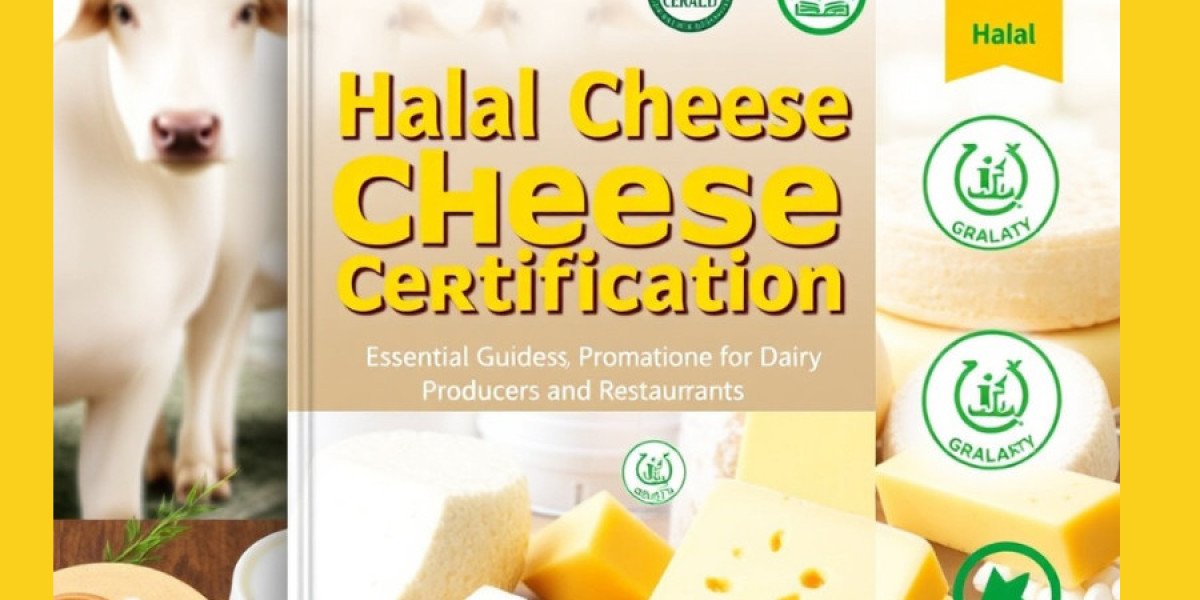The global halal food market continues to expand rapidly, with Muslim consumers seeking authentic products that align with their religious dietary requirements. For dairy manufacturers and food service establishments, obtaining proper halal cheese certification has become increasingly important to serve this growing demographic and expand market reach.
What Makes Cheese Require Halal Certification?
Many consumers assume that cheese automatically qualifies as halal since it comes from milk. However, the production process often involves ingredients and enzymes that may not meet Islamic dietary standards. The primary concern lies in the rennet used during cheese manufacturing—a coagulating enzyme that can be derived from animal, microbial, or plant sources.
Traditional cheese-making frequently uses animal rennet extracted from the stomach lining of calves, which raises questions about the source animal and slaughter method. Additionally, some cheese varieties contain alcohol-based flavorings, gelatin, or other questionable additives that require careful examination.
The Certification Process for Dairy Products
Obtaining cheese certification involves rigorous inspection and documentation. Certification bodies examine every aspect of production, from ingredient sourcing to manufacturing processes and equipment sanitation. The process typically begins with a detailed application where producers list all ingredients, suppliers, and production methods.
An on-site audit follows, during which inspectors examine the facility, review supplier documentation, and verify that all ingredients meet halal standards. This includes confirming that rennet sources are either microbial, plant-based, or derived from animals slaughtered according to Islamic law.
Once approved, manufacturers receive a halal dairy certificate valid for a specific period, usually one year. Regular follow-up inspections ensure continued compliance with halal standards. This certification must be renewed periodically, with manufacturers required to report any changes in ingredients or processes.
American Cheese and Halal Standards
Halal American cheese has become increasingly available as major dairy producers recognize the market demand. American cheese, known for its mild flavor and smooth melting properties, traditionally contains additives and emulsifiers that require verification. Manufacturers producing halal-certified American cheese must ensure that all components—including milk, cultures, enzymes, emulsifiers, and preservatives—meet strict halal requirements.
Several prominent dairy brands have successfully obtained certification for their American cheese products, making it easier for Muslim consumers to find suitable options. These products typically display certification logos prominently on packaging, providing immediate recognition for shoppers.
Choosing the Right Certification Body
Selecting an appropriate Halal Certification Agency is crucial for dairy producers seeking credibility and market acceptance. Not all certification bodies carry equal weight in the Muslim consumer market. Factors to consider include the agency's reputation, recognition across different countries, and expertise in dairy product certification.
Established agencies maintain relationships with Islamic scholars and follow internationally recognized standards. They should offer transparent processes, reasonable fees, and responsive customer service. Producers should research which certifying bodies are accepted in their target markets, as some regions prefer specific certification organizations.
The agency's credibility directly impacts consumer trust and product marketability. Well-known certification marks on packaging signal to consumers that products have undergone thorough vetting, increasing purchase likelihood.
Comprehensive Support Through Certification Services
Professional halal certification services extend beyond initial certification to provide ongoing support for food businesses. These services include ingredient analysis, supplier verification, staff training, and assistance with maintaining compliance. Many agencies offer consultation during product development, helping manufacturers select appropriate ingredients before production begins.
Training programs educate staff about halal requirements, proper handling procedures, and contamination prevention. This knowledge ensures that certified status remains intact throughout daily operations. Some agencies also provide marketing support, helping businesses communicate their halal status effectively to target audiences.
Halal Certification Across the United States
The demand for usa halal certification has grown substantially as the American Muslim population expands. The United States now hosts numerous certification agencies serving diverse food sectors, including dairy production, meat processing, and restaurant operations. This growth reflects both demographic changes and increased awareness among mainstream food companies about halal market opportunities.
American certification standards often align with international requirements, making it easier for producers to export certified products. The robust certification infrastructure in the United States supports both small artisanal cheese makers and large-scale dairy operations.
Restaurant Certification Requirements
Food service establishments serving cheese-based dishes benefit from halal certification for restaurant operations. Restaurant certification encompasses more than ingredient verification—it covers kitchen equipment, preparation areas, storage practices, and staff procedures. Cross-contamination prevention is critical, requiring dedicated utensils, cutting boards, and cooking surfaces for halal items.
Restaurants must maintain detailed records of suppliers and ingredient sources. Even trace amounts of non-halal substances can compromise certification status. Many certification agencies provide specific guidelines for restaurant kitchens, including protocols for handling pre-certified ingredients and preparing dishes that meet halal standards.
The certification process for restaurants typically includes menu review, kitchen inspection, and staff interviews. Inspectors verify that preparation methods align with halal requirements and that systems exist to prevent contamination from non-halal products.
Market Benefits and Consumer Trust
Halal certification opens significant market opportunities for dairy producers and restaurants. Certified businesses can access Muslim consumer markets domestically and internationally, participate in halal food exhibitions, and list products in specialty halal stores. Beyond the Muslim market, many non-Muslim consumers view halal certification as an indicator of quality and ethical production practices.
The certification demonstrates commitment to transparency, ingredient quality, and ethical standards. This builds consumer trust and brand loyalty, particularly among customers who carefully scrutinize food sources. In competitive markets, halal certification can differentiate products and justify premium pricing.
Conclusion
Securing halal certification for cheese products and restaurant operations requires dedication to meeting strict standards, but the benefits justify the investment. As Muslim populations grow and halal awareness spreads, certified businesses position themselves for sustained success. Producers and restaurateurs who embrace certification demonstrate respect for dietary requirements while accessing expanding market opportunities. The process, though detailed, ultimately strengthens quality assurance systems and builds lasting consumer relationships.







